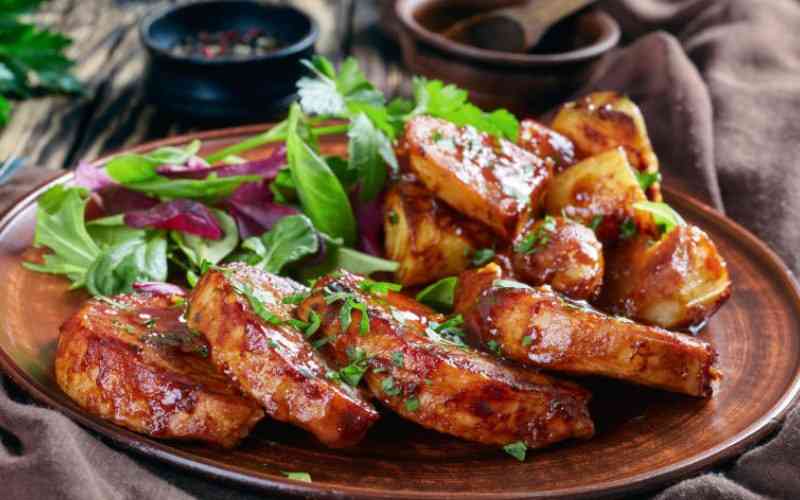
The mushrooming of pork butcheries and eateries across the country is a pointer to the growing appetite for the delicacy.
This shift in dietary preference has not gone unnoticed with the Economic Survey Report 2024 showing a huge increase in the number of pigs slaughtered.
Some 616,000 pigs were slaughtered last year, a 42.6 per cent increase from the previous year, which saw 432,000 pigs slaughtered.
Kasarani Pork Producers Cooperative Society Limited chairman Douglas Gichuki admits cultural and religious barriers had for long been a hindrance to the uptake as some people believe the snorting animal is unclean.
“There are people who don’t care about cultural beliefs. They no longer consider pork as foreign market product. We have seen a change too in the offerings for pork products from high end salami to smokies which are affordable to Kenyans,” he says.
Gichuki says worrying data by the Kenya National Bureau of Statistics (KNBS), which shows that 12 per cent of Kenyan children are stunted, can be rectified by encouraging consumption of affordable protein-rich products such as pork and chicken.
“Less than a decade ago, we had fewer people eating pork and I think with exposure to different culinary traditions, Kenyans are becoming more open to trying new foods, including pork. Again, it is fairly priced compared to other meats. This factor has made pork a popular choice for many households looking for a tasty and affordable source of protein,” says George Muiruri, who runs Ubora Eats in Kasarani area.
“Kitimoto or Mbuzi Ulaya as pork is popularly known in street lingua in Coast, is slowly becoming popular and we have cases of Muslims eating pork although it is prohibited in their faith. Here in Malindi, we have only three butcheries selling pork,” says chef Abigael Omondi.
After eating pork, the bones are used to drive away evil spirits.
However, Saitoti Legei a meat supplier in Kitengela maintains goat meat is most preferred to pork.
“Beef consumption has remained relatively the same due to the economic crunch and again, a whole cow can feed tens of households which makes sense that we are not experiencing any surge compared to other meats.
According to the KNBS survey, the number of cows slaughtered increased by 6.7 per cent, from 1,783.1 thousand head in 2022 to 1,903.3 thousand head in 2023.
The nyama choma culture has also had its effect on the number of sheep and goats slaughtered as it increased by 36.1 per cent, from 7,281,000 heads to 9,906,200 heads.
“During Covid-19 times, consumption dropped as there were restrictions on partying and events. After the restrictions were lifted, things have started going back to normal, although the current economic situation has affected buying power. Currently, a kilo of goat meat goes for Sh850,” he says.